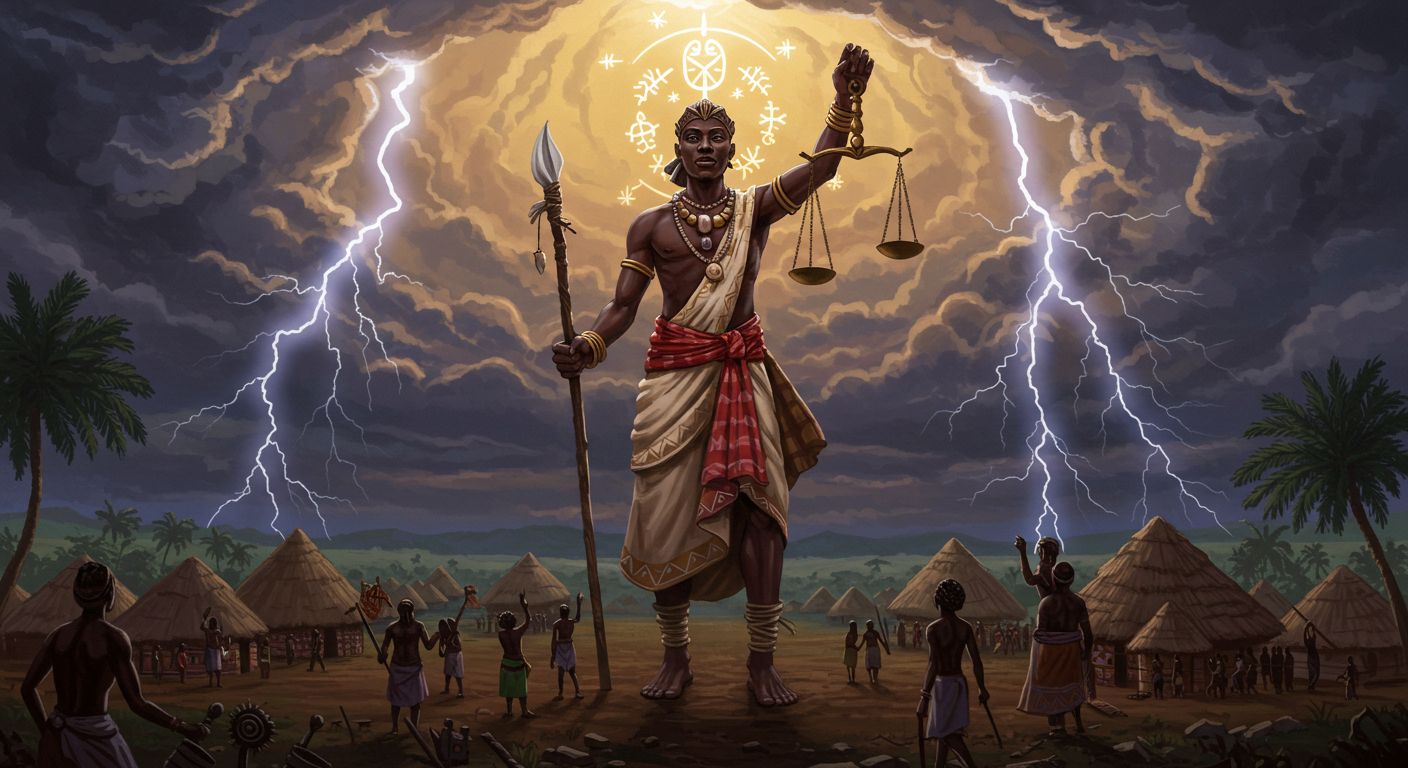Amadioha: The Igbo God of Thunder, Justice, and Divine Wrath

Who is Amadioha?
Amadioha is one of the most powerful and well-known deities in Igbo traditional religion, revered as the god of thunder, lightning, and divine justice. He is often compared to Sango, the Yoruba god of thunder, but Amadioha’s role in Igbo cosmology extends beyond weather phenomena — he is a symbol of truth, justice, and righteous anger.
🌩️ Attributes of Amadioha
Thunder and lightning are believed to be his voice and weapon. When thunder roars or lightning strikes, it’s often seen as a sign of his presence or displeasure.
He is a god of justice who punishes liars, thieves, and oath-breakers.
Wielding a powerful force, Amadioha enforces divine law, ensuring that truth prevails over deceit.
He is also associated with light, masculinity, and solar energy, representing order and clarity in society.
Amadioha is believed to strike down offenders with lightning, especially those who violate traditional laws or make false oaths under his name.
🏛️ Worship and Symbols
Amadioha’s worship is widespread in Southeastern Nigeria, particularly in communities across Imo, Abia, and Rivers States. Some key features of his veneration include:
Shrines and groves are dedicated to him, often under sacred trees or in forested areas.
His symbol is a white ram, which is also used in sacrifices and rituals.
Followers wear white attire during ceremonies, symbolizing purity and truth.
Amadioha is sometimes invoked during disputes or in traditional courts to administer oaths. It is believed that swearing falsely in his name invites swift and fatal judgment.
⚖️ Amadioha and Traditional Justice
In Igbo society, law and spirituality are deeply connected. Amadioha is not just a punisher but also a protector of moral order. His presence deters wrongdoing and encourages honesty.
Before modern court systems, disputes were often settled by invoking Amadioha. If both parties agreed to take an oath before him, the matter was considered settled — with the understanding that divine punishment awaited the liar.
This role of divine justice made Amadioha a central figure in social accountability.
🔥 Amadioha vs Sango: Similarities and Differences
Though Amadioha is often compared with Sango, the Yoruba god of thunder, they serve slightly different roles:
| Attribute | Amadioha (Igbo) | Sango (Yoruba) |
|---|---|---|
| Role | God of Thunder and Justice | God of Thunder, Fire, War |
| Symbols | White ram, lightning | Double axe, thunderstone |
| Worship Region | Southeastern Nigeria | Southwestern Nigeria |
| Focus | Divine justice, truth, cosmic order | Power, kingship, retribution |
While both command thunder and lightning, Amadioha is more judicial and moralistic, while Sango emphasizes power and authority.
🌍 Amadioha in the Modern World
Although Christianity and Islam have overtaken traditional religion in many Igbo communities, Amadioha remains a cultural symbol — invoked in proverbs, songs, and festivals.
Many Igbo people still respect the spiritual consequences of swearing falsely by his name. Some traditionalists continue to maintain shrines and oral traditions, preserving his story and influence.
With the growing interest in African spirituality, Amadioha is increasingly being studied and embraced by diaspora communities and young Nigerians seeking to reconnect with ancestral wisdom.
🧠 Final Thoughts
Amadioha is not just a mythological figure — he is the embodiment of justice, truth, and divine authority in Igbo cosmology. His thunder reminds the world that wrongdoing has consequences, and that even in silence, the gods are watching.
In an age where morality often feels negotiable, Amadioha’s presence in cultural memory stands as a timeless voice for righteousness, courage, and cosmic balance.

